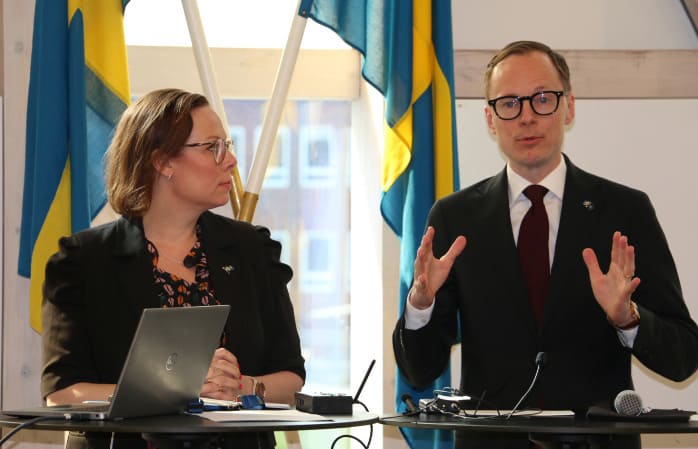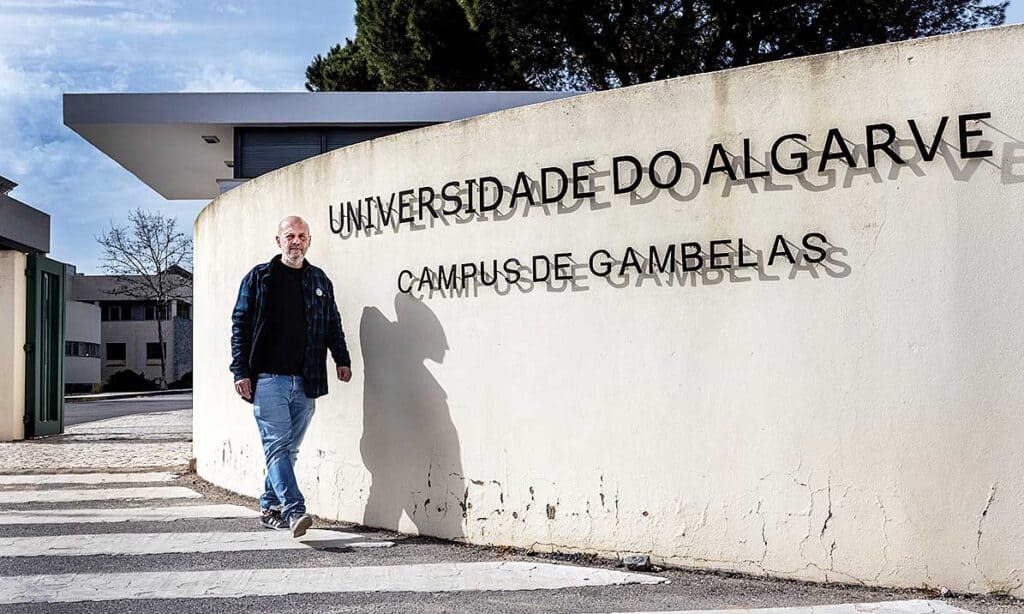Cansu Elmadagli came to Örebro University from Turkey in 2017 to do a doctorate in media and communication. She completed her thesis in the summer of 2022, and after her doctoral employment expired, she was given fixed term employment to continue her research and teaching at the university.

At the beginning of September, she applied to the Swedish Migration Agency for long-term resident status. This is an EU-regulated residence permit that can be granted to people who have had a residence permit in an EU country for at least five years and who are deemed to be able to support themselves in the long term.
Demanded proof of unemployment insurance
It took five months before she heard heard from her case officer at the Migration Agency. At that time, she had six months left of her employment contract and fulfilled the requirements to receive full unemployment benefit if she were to become unemployed, i.e. compensation for more than a year.
“The case officer said that I could not show enough stability with regard to my income in the long term,” says Elmadagli. “She also did not accept that I was eligible for unemployment benefit, and wanted a certificate as proof. I replied that I’m not unemployed yet, so how can I show it?”
In a Facebook group for foreign doctoral candidates, Elmadagli had seen that people who only had a couple of months of employment left, but were entitled to receive unemployment benefits, had had their applications approved by the Migration Agency. She contacted Robert Andersson, head of negotiations at SULF.
Andersson says that the Swedish Migration Agency has become stricter in its assessments of who can be granted long-term resident status since changes in the migration legislation were introduced in 2021, including self-support requirements regarding permanent residence permits.

“This requirement made it significantly more difficult for people to obtain a permanent residence permit. So we started advising members to apply for long-term resident status instead, as that was easier to get. A year ago, people could have their application approved if they had six months of their employment remaining and were then entitled to receive unemployment benefits after that. But now it is unclear how the Migration Agency applies the rules,” he says.
Case officer’s response came as a surprise
In an email to her case officer, Cansu Elmadagli wrote that she is entitled to receive compensation from the unemployment insurance fund and wondered why the Migration Agency had changed its assessment criteria so that this is no longer approved as a future form of financial support.
The response from the case officer surprised both her and Robert Andersson. ”It cannot be easier to get long-term resident status than to get a permanent residence permit”.
“But this is regulated by the EU,” says Elmadagli. “When the migration laws were changed, no changes were made to the rules for long-term resident status.”
Robert Andersson contacted the Swedish Migration Agency and criticized the case officer’s response. The Agency agreed with the criticism. Andersson also suggested that Cansu Elmadagli should be allocated a new case officer, but this did not happen. Instead, her application was denied.
She was then informed that she needed a ”Hosting agreement for visiting researchers” in order not to be deported, despite being employed at Örebro University.
“When I asked the Migration Agency a year ago what I should do, they said that I should apply for long-term resident status. Now they have suddenly decided to handle cases differently. They have made a lot of changes that make it completely impossible to stay in Sweden if you don’t have permanent employment,” says Elmadagli.
Psychologically wearing
With the help of Robert Andersson, she has appealed to the Migration Court. The appeal could take up to 16 months.
“If I don’t have a new job by the end of August, I need to apply for a residence permit for people who have completed their research so that I don’t get into trouble for staying in Sweden while I’m waiting for a decision from the court,” says Elmadagli.
If she gets a new job, she will have to apply for a work permit. “In practice, this means that I cannot take short-term appointments within academia, because then I will have to have a new job lined up that starts the day after the ongoing contract ends. Otherwise I will have to leave Sweden.”
She has little confidence in the Swedish Migration Agency. “You live in a country for several years, pay taxes, contribute to the economy and society, but as soon as your situation becomes uncertain and you can’t be used as labour, it’s ”goodbye!” from Sweden. I can be deported at any time. It’s very wearing psychologically. It’s inhumane.”
Uncertain even for employers
Annika Gardhorn is a head of unit at Örebro University and Cansu Elmadagli’s immediate manager. She thinks the Migration Agency’s actions are odd. “We bring foreign students here, educate them and pay them a salary, and then they are sent home. Why don’t we keep this competence in Sweden?”

There is also a lot of uncertainty for the employer when we don’t know whether someone will be granted a residence permit, says Gardhorn. “There is uncertainty on both sides, and it is of course a major stress factor for these young researchers. It can make them unwell and they sometimes need to take sick leave, which then extends the process even further.”
She finds it strange that the Swedish Migration Agency has not been in direct contact with her as a representative of the employer. “There is no such communication.”
Robert Andersson says that many doctoral candidates and recently qualified PhDs who have not had time to find permanent employment are impacted by the ambiguities in the Migration Agency’s processing of applications. As well as Cansu Elmadagli, he is in contact with two other members who are experiencing similar problems. “The fact that no-one can say in general what rules apply leads to a great deal of uncertainty.”
Andersson believes that there is a lot that is unclear with regard to the Migration Agency’s assessments, for example how long into the future applicants are expected to be able to prove they can support themselves; whether unemployment benefits are counted as income or not; and how the authority assesses the likelihood that a person will have continued employment – something the case officer is obliged to investigate according to the Swedish preparations for the implementation of the EU directive on long-term resident status.
Unemployment insurance rules misinterpreted
Andersson believes that the Swedish Migration Agency has also misinterpreted the unemployment insurance fund’s rules. The Agency has calculated the compensation period that a person is entitled to as being shorter than one year, when in fact it is longer than a year, so decisions are currently being made on incorrect grounds.
“If it could be confirmed that unemployment benefits can be included in the self-support requirement assessment, and if the time period applicable is one year from the date of the application, then a great many of our members would meet the requirements,” he says.
Cansu Elmadagli has been in contact with several other foreign researchers who find themselves in a similar situation. “None of us see a future for ourselves in Sweden. We are highly educated and have worked hard to get here. We could have chosen to move elsewhere.”

According to Per Löwenberg, head of the migration law unit at the Swedish Migration Agency, the authority has not changed its assessment criteria. “We have a lot of cases and need to make sure that similar cases are treated equally,” he says. “That is how it should be and is our starting point.”
You can read a longer interview with Per Löwenberg here.















